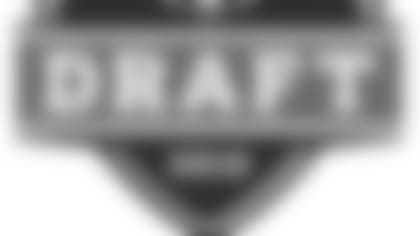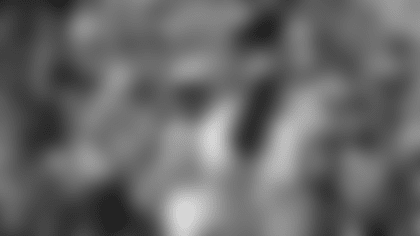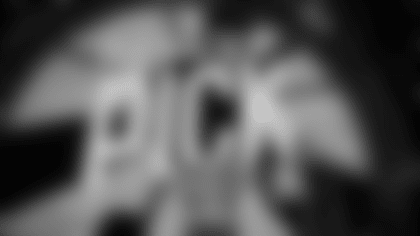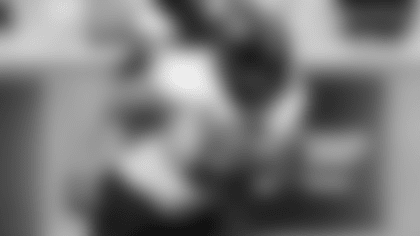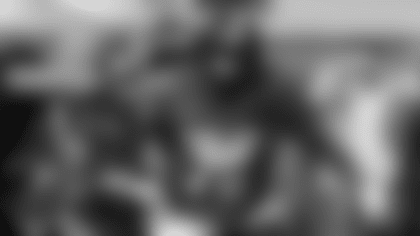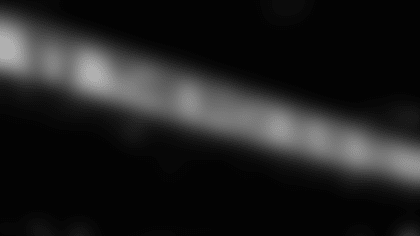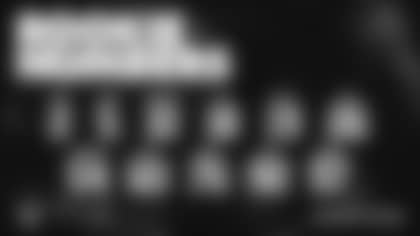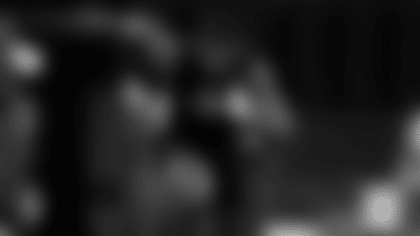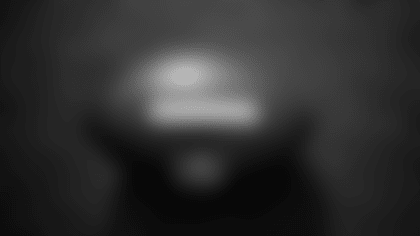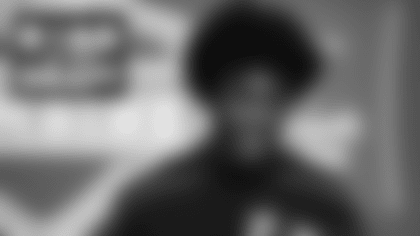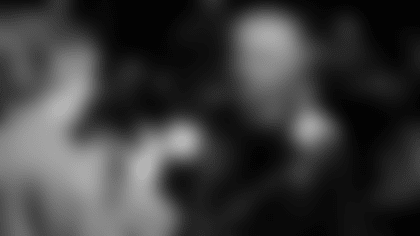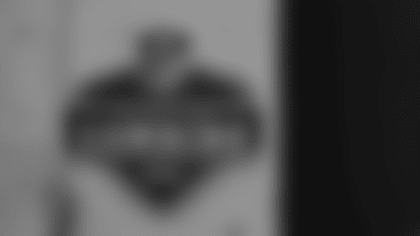As the 75th Draft in NFL history approaches, Raiders.com caught up with the Raiders Director of College Scouting, Jon Kingdon, for a Q&A. The Draft is set for April 22-24 and will take on a new three-day format this year.
Raiders.com: Obviously selecting draft picks, the draft process, it's a long process. When do you start? Can you take us through when it starts and up through draft day?
Jon Kingdon: The way this works is we actually start almost immediately after the previous year's draft. We're obviously not under any major time schedule at this point, but we'll start watching the upcoming seniors and juniors, which helps us determine where we're going to go with scouts and where we need to send extra scouts. So we get our preliminary work done in May and June and July. Then, basically in August, the scouts start going out to the early practices with the schools and all of Fall we're out there scouting the schools right through the end of the year. Then in January you have the all-star games, February is the Combine, and March is the timing days. In April we have basically a month long meeting with us and the coaches and put it together that way. That's pretty much a quick synopsis.
Raiders.com: Explain the difference between drafting the "best available" and drafting for need.
Kingdon: You reach a point where some teams have a great need for a particular position and you might take a player that will step in and improve you immediately as opposed to a another player that has more ability but you may feel will take him longer to develop or is a position you're really deep at and he wouldn't have the opportunity to play. At some point you make that decision which way to go and it's probably a question you go through each round of the draft.
Raiders.com: How much has the draft evolved over the years? At one point, it was so many rounds and then it was down to 12 and now it's down to seven. Now we're going to add the element of primetime in the 1st round. What have you seen over the years in how it has evolved and not only how it's run but also in the information available to you as a scout?
Kingdon: It's major in every aspect. People used to lug projectors with them. It was all film, that's one thing. The evolution of tape to DVDs to digitized film… During the draft, you used to beg schools to give you one or two game tapes and you would have them in your office and kind of watch that together. Now, we have over a thousand college games in-house and we'll do major cut ups. We used to have this film and you had to take care of it and you couldn't cut up that tape and make your highlights off of them. You'd put little pieces of paper in the spools and you'd run it to each little piece of paper… so that's a major change... The use of computers, laptops as opposed to mailing your reports in. We didn't used to have the combine, so you have more information that way. The other thing is the public interest has just exploded. This is a major, major day for every football fan in the country and even some that aren't. It's to the point I remember when we had 12 rounds in one day and you started at seven in the morning and we went until 11 p.m. that night. Now, round one is one day on national TV and rounds 2-3 is another day on TV and rounds 4 through 7 is another day. There's just so many more people involved, the internet experts, there's a lot more information out there than there used to be. The sleepers aren't really there like they used to be because there's so much more coverage with the press and the like.
Raiders.com: You say the sleepers aren't out there that much but then you find a guy late in the draft that turns out to be a versatile player that produces for you. Are some of these lesser known guys still out there for you to find?
Kingdon: In that sense, yes, you take your shots. What I meant by sleepers is that you take a guy and people say, "I've never heard of him." For example if the internet [writers] say "we've never heard of him." So I'm saying there used to be players in the later rounds that there used to be only one or two scouts that covered guys like that. Now every school…like last year Webber International had a player, a cornerback and I was called about it and I looked into it and I was like the 9th team that was in on Webber International, the school down in Florida.
Raiders.com: When talking about the Combine, when you look at guys who are productive in college and show up on some radar screens, but then go to the Combine and excel at every part, the weight lifting, the 40-yard dash, etc., how much stock to put in Combine workouts and how do you separate that and look at the whole body of work?
Kingdon: Well, you really have to look at the whole body of work. We had scouts on the road, watching them play on film, before we knew what their workout numbers were. You like to think that carries and that the way they play will carry a lot of weight in your evaluation. The athleticism is something that needs to be accounted for as well. Again, those are factors you balance against each other in your ultimate decision.
Raiders.com: How much do you look at a player's character? How much do you think about their background as you do your due diligence?
Kingdon: The league does a background check on the players of the teams and we'll do our due diligence as well. They've been at these schools at least four years, some five and maybe a few just three, but we'll [talk] with those coaches. If they've been a problem there, they'll certainly bring it up to us. If they haven't been, even if they come from a questionable background, they've overcome problems and been good those four years, we put a lot of stock in how they've handled their four years of college away from that environment. So yes, it's a factor. You're investing a lot of money and you don't want to make your mistakes that way.
Raiders.com: Your draft class comes in and the scouts always come back and you watch the players practice. How do you feel when one of your draft picks, maybe especially a guy that was off a lot of radar screens, goes out and performs? How do you feel knowing that you went out there and found him?
Kingdon: I think one of our strengths of our department is we, as a group, have been together a long time and we really understand each other's strengths and weaknesses as scouts and we really try to come up with a consensus opinion so I think it's not an individual feeling. Every player that we've picked has been seen by more than one scout, whether it's at all-star games, cross-checks or workouts. We always try to keep our eyes on it and as a group we'll watch film together so I think the success we get, even if you're the first scout in, you see it as a group, as a consensus of our department, not just as an individual. We have an egalitarian department where everyone's opinion carries an equal weight.


